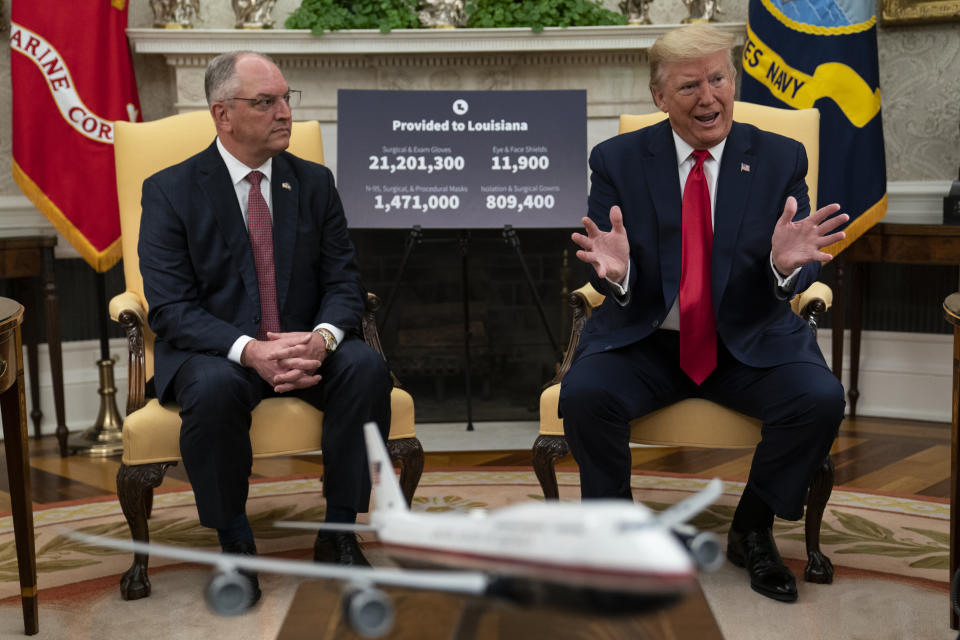Coronavirus economic calculus: 'How many lives will we lose in doing this?'
The economic fallout of the coronavirus pandemic is being felt across industries, across states, and in households across the U.S. With millions unemployed and businesses being shut down, the economy, as reported Wednesday, contracted deeply in the first quarter.
The governors of Georgia, Texas, and South Carolina have opted to start reopening their economies despite concerns over a resurgence of the virus.
Many health experts (as well as lawmakers) question this calculus. “That’s the key issue, which is how many lives will we lose in doing this?” Dr. Harlan Krumholz, professor of medicine at Yale, told Yahoo Finance.
“What one state does affects the neighboring state. It’s not like anyone is completely isolated so you can make decisions that don’t affect others,” he said.
While a few governors have gone ahead and loosened restrictions in violation of the White House’s social distancing guidelines in effect until April 30, President Trump’s administration has turned its attention to testing capacity to help speed up the reopening of the economy.
Testing is widely viewed by health experts and business leaders as key to reopening major parts of the economy.
A senior Trump administration official stated this week that the country has the capacity to test 2% of residents in all 50 states. That’s not enough, according to many health experts.
“2% seems way too low to me. Much of this virus is spread by people who don’t even know they’re infected. They’re asymptomatic and operating in real life,” said Krumholz, who is also director of the Yale New Haven Hospital Center for Outcomes Research and Evaluation. “That’s why it’s such a sneaky virus. That’s why it’s so hard to control.”
Widespread testing is not enough
While widespread testing is needed, a well executed national strategy informed by the collection of the right type of data is even more important in order to break the chain of transmission.

Krumholz explains that obtaining definitive data on which individuals are asymptomatic carriers of the coronavirus will help leaders make better decisions about when to reopen.
“[This] is not to stigmatize [asymptomatic coronavirus carriers], not to make them feel awful or to keep them out of jobs,” he said. “We need to figure out ways to support them, but we need to separate them out in ways that they are not then transmitting it and augmenting and amplifying this virus for the whole society.”
‘People are putting down their egos’ in race for coronavirus vaccine
While there are now more than 1 million confirmed coronavirus cases in the U.S., the flattening of the curve and slowdown in the rate of infections was only achieved through social distancing, which is not a cure.
The country that wins the coronavirus vaccine race could potentially get to jumpstart its economy, while the rest of the global economy is reeling.
“This is a moment in time where people are putting down their egos, are putting down their natural boundaries and actually saying we’ve gotta race because society’s future is at stake,” said Krumholz. Seventy coronavirus vaccines are being developed around the world, according to the World Health Organization.
“I’ve never seen anything like this. A large percentage of the scientific talent in this country and around the world is focused intently on this problem,” he said.
More from Sibile:
Up to 13 million people unable to collect unemployment. Here’s why
Coronavirus retail shift helps laid off Americans find work: report
Small-business owner describes frustrating PPP experience with longtime banker JP Morgan Chase
Coronavirus lockdown may have this deadly secondary effect
Coronavirus cancellations: Outrage over lack of refunds as 59 million people lost money
